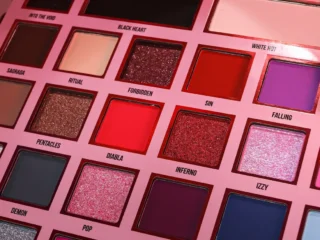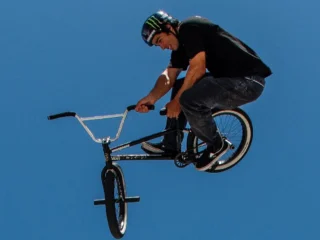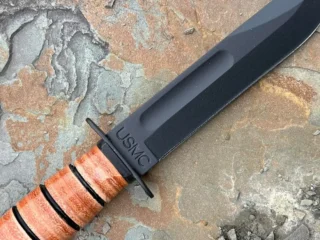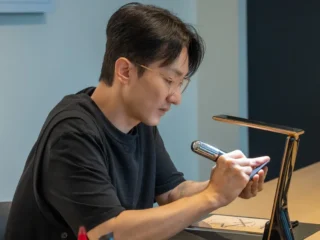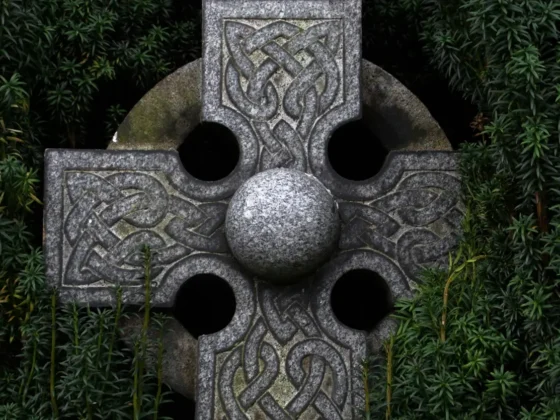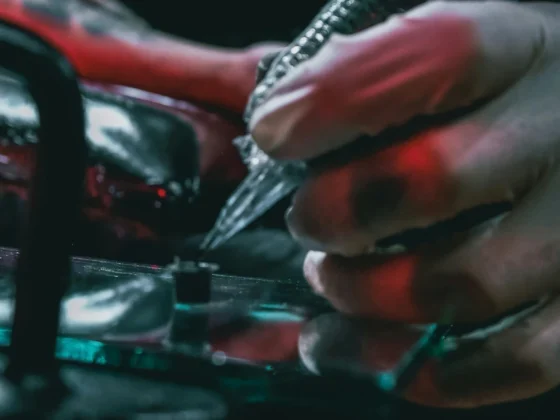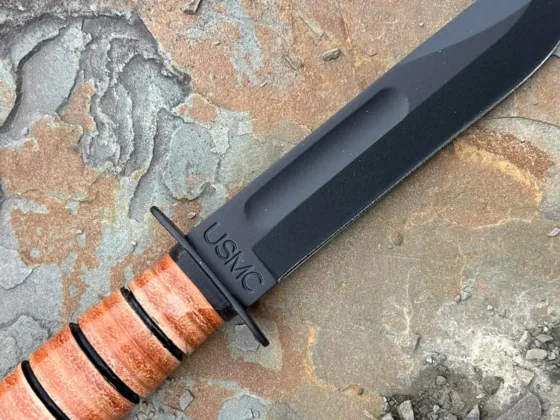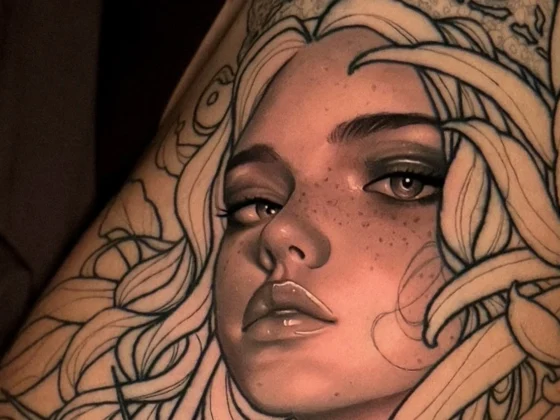Devon Preston
June 19th, 2019
Brian King Joseph’s Got Talent
How the America's Got Talent contestant won over the world with his mega watt smile, breathtaking talents, and inspiring story of battling neuropathy
Every season, NBC’s America’s Got Talent introduces the nation to dozens of talented acts across music, magic and comedy. And during their 13th season, we were introduced to 27-year-old electric violinist, Brian King Joseph. Not only did Joseph impress the judges with his incredible musical abilities and megawatt smile, he won over audiences with his inspiring story of struggling with neuropathy. Joseph stopped by our studio in Los Angeles’ fashion district to discuss his introduction to violin, his shocking medical diagnosis and his experience performing alongside Lindsey Stirling.
When did you first start playing the violin and when did you decide to pursue music professionally?
I started playing the violin at the age of four. Around eight, I started playing in churches with my sister and then went on to do national competitions. At that time, I couldn’t read music, but I could play a lot of songs well above my age level. Playing from week to week felt so natural and it was always there as a potential career choice, but I wasn’t sure how that would happen or what type of music I wanted to play.
During your time at the Berklee College of Music, you were forced to leave the program due to a shocking diagnosis. What was that diagnosis?
Once I got into Berklee, I was so happy and thought that this was where the rest of my life begins. But I remember over Thanksgiving break, the day I essentially lost control of my body and was sitting there with excruciating pain, trying to figure out what was going on with me. For a few months, I went next door to the Harvard Medical Center and just confused the doctors. Some of them thought that I had acute rheumatoid arthritis, while others thought that I had spinal problems. I’d been through all of these tests and finally, I’m in a room with about 12 different neurologists. The head neurologist says they think I have neuropathy, and they were going to test for that. They didn’t think I had it because I was too young, but they were going to start poking me to see how much feeling I had. About 10 minutes into it, I started getting annoyed and I’m really tired of being at the hospital, so I asked the doctor if we can start the test. Everyone in the room stopped and the doctor said, “We’ve been doing this for 10 minutes already, you definitely have neuropathy and it’s severe.” He told me that I’d lost most of the feeling in my feet and my hands. I was 22 at the time and he told me that I had about eight years left to keep walking on my feet and possibly less to continue playing the violin. The motor skills to play the violin are a lot more complex than to just walk with one foot in front of the other. At that time, I was completely devastated to hear this, and I’ll always remember the way that doctor looked at me. It was such a heavy day but I think that it was also the day that helped to change things around. Having a doctor tell you that you’re not going to be walking by age 30 can have two different effects — you can either be incredibly sad and accept that fate, or you can say ‘Screw you, no way.’ As soon as he said that, part of me thought that there was no way that I was going to let things go down like that, and at the rate I’m going, at 30 I’ll still be walking and playing.

How does neuropathy impact your day-to-day?
Neuropathy has been a driving factor in my life since I’ve had it. I feel like I haven’t slept since I was diagnosed, which was almost six years ago. Having neuropathy, you’re woken up by pain so deep that you can’t make it go away, and having it there all the time puts you in a state of perpetual tiredness. That’s one of the factors that mattered to me in continuing to play because pushing through that pain while continuing to play makes it feel so worth it. That’s why I’ve turned to violin so much while I’ve been sick because it’s more important to me than what I’m going through. If I can cast away that pain — if only for a few minutes during a song — I can turn that pain into something completely different. That’s a big reason why I smile when I’m playing because it feels so cool to take what I’m going through and cure myself in that way. It’s a temporary feeling and every time I play, I have to deal with the physical consequences of that later on. Especially on those nights where I’ve performed for a bunch of people, those have been my roughest and most painful nights, but I’m so happy. It’s better than the nights where I’m not feeling as bad because of that feeling.
What led you to audition for America’s Got Talent” and what were your expectations going into that experience?
This is America, we grow up watching talent shows. I remember watching talent shows on Saturday nights with my mom and sisters, and part of me was thinking that I could do it. I’ve always believed in myself and wanted to show the world what I can do. Being on “America’s Got Talent” was an opportunity to show everyone what I’m doing, and as someone who does something like me, it’s very hard to go out and get a record deal. It’s not a proven thing that a violinist can hit the charts and spark the interest of America. But I believed in myself and thought that I belonged on that show.
After I auditioned, I got the callback and the producers said they were thinking about putting me on the show. But then a few weeks went by and I didn’t hear from them. So expectation-wise, I thought that they didn’t want me. I knew that there was a timeline on producing the show and I thought that if I were going to be on the show, I’d be on it already because they’d have to start filming. During the next week, I get a phone call at 10:30 p.m. and they were like, “Hey, we’re doing our very last round of auditions in front of the judges. One of our guys dropped out, can you come at 7 a.m. tomorrow morning?” It was all last minute, I didn’t even have a song or an outfit ready. But I did it and everything happened because I picked up the phone late at night.
How did the competition setting and the pressure to perform impact you both mentally and physically?
By nature, I love to compete and it drives me. There’s something about the seriousness and being in the thick of it that makes me so much better. On the other hand, I was pushing myself so hard that I got into this one-track mindset. Doing a show like this can be stressful for anyone, but for someone like me, dealing with the pain and the exhaustion, it was grueling. It’s hard work because we’re all fighting for that one chance to give the world everything we’ve got and be appreciated for it. I don’t mind busting my butt for a week just to play for four minutes, as long as those four minutes are glorious and magical.For me personally, there were a lot of challenges physically going through it. One time, during the dress rehearsal the day before the finals, I was practicing with Lindsey Stirling for our duet. We ran it once and it was great, but we wanted to run it one more time just to make sure. And in the middle of the song, I’ve never felt all four of my limbs refuse to listen to me at the same exact time. I was on stage playing and then I was on the ground unable to move. I had to be wheeled up to my hotel room and rested for about an hour before I went right down to finish the day. And then I went out and performed that night. It was between the span of four hours that I’d been paralyzed and then playing. It was one of those moments that showed me there was nothing that could stop me.
Editor's Picks
Chris Brown’s Face Tattoo Shows His Heart and Sole
Chris Brown has a brand new tattoo! Long gone are the days of the baby faced teen, Brown is all grown up and has the tattoo collection to prove it!…
Oh Me, Oh My
Chrissy Chlapecka on finding her voice, spreading self-love on TikTok and releasing her first single





